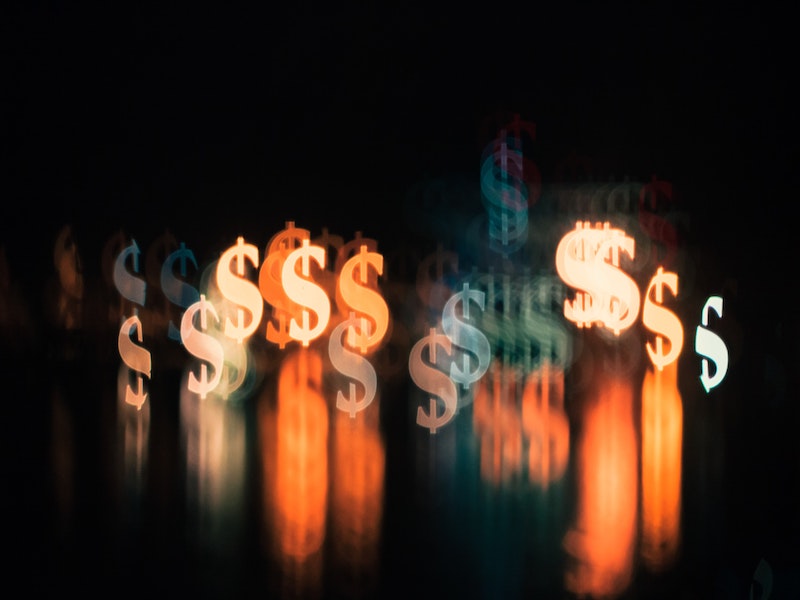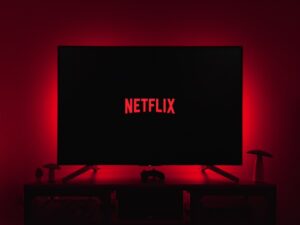There is something desperately wrong in America that no presidential election will solve. Widespread protests in cities. Deep mistrust in the police force who kill unarmed people in the street. Armed militias on patrol as if America were a war zone. Poverty and unemployment are widespread. The election has reinforced political polarisation within a deeply divided society. Far-right and white supremacists groups are on the rise; many believe America is on the brink of civil war. For all intents and purposes, America has become a failed state.
How has this happened? Doesn’t America have the largest economy in the world, and some of the most successful businesses? You would think all that wealth would translate into a flourishing, united society. Clearly not.
Underlying the tensions plaguing America is one constant, a poison that feeds off and sucks the lifeblood out of society. It is an idea that has a vice-like grip over America, and it won’t let go. That idea is neoliberalism. It is this economic model that, above all else, explains why the social fabric in America is crumbling.
To sell one’s soul to the devil is to do anything to achieve an objective. In America, the wealthy elite has sold their souls to filter America’s wealth into their own hands. The victim of these sell-outs is society itself. But when neoliberalism does what it’s intended to do so magnificently well — make the rich, richer — any side effects of this pursuit are irrelevant.
So, how did neoliberalism come to dominate in America?
The Neoliberals
Before thinking about how it came to dominate, we need to understand what neoliberalism is. Ever since the Great Depression in 1929, the market had become regulated to prevent another crash from happening. Neoliberalism was an idea born from a desire to wrench back control of the market away from the meddling government.
The heart of neoliberal thinking is the idea a free market is self-regulating and can solve all economic and social ills. Neoliberals argue the fewer controls and regulation on the market, the better.
In line with this, neoliberals seek to minimise government influence — by reducing the welfare state, cutting taxes and privatising industries and services.
The smaller the state, and the more industries and services are placed into the hands of businesses, the better. Because business is driven by the profit motive, meaning privatisation drives efficiencies and provides consumers choice. Great for stimulating the economy and generating wealth.
Underpinning the free-market capitalist haven is the logic of the trickle-down effect. Where wealth filters down from the richest to the poorest, making everyone in society better off.
In short, the essence of a neo-liberal policy is more freedom for the market, more privatisation, and fewer taxes.
The perfect bedfellow
America seemed to be the perfect bedfellow for the ideas of neoliberalism to take a stranglehold.
The American Dream — a core America value — has always has been a celebration of the individual. In the land of the free, any person can make their fortune if the social, political and economic landscape allows.
America has always identified with a passive form of Government. One that doesn’t meddle in peoples lives or individual freedoms which would make it harder for people to succeed in living the dream.
Neoliberalism, an idealogy that argues for complete freedoms for individuals mirrors the American idealogy. With more freedom from the government, each person has a better chance of ‘living the dream’. In this cultural climate, neoliberalism sounds like an easy sell.
But the neoliberals couldn’t just waltz in and take over America. They had to bide their time to get into power. Because, after WWII, American sentiment was far removed from accepting this extreme form of capitalism.
America after WWII
After WWII, America reaped the benefits of the Keynesian revolution. John Maynard Keynes, an economist from the UK, had a revolutionary idea. Keynes thinking centred on ‘aggregate demand’. Arguing the total sum of spending by households, businesses, and the government was the most important driving force in an economy.
Underlying Keynes economic policy was a balance between the public sector and private sector, helping to stabilise the economy.
Keynes economic thinking, underpinned by the regulation of markets came to dominate America after WWII. And the adoption of Keynesian economics led to a post-war boom.
“Gross national product (GNP), which measured all goods and services produced, skyrocketed to $300 billion by 1950, compared to just $200 billion in 1940. By 1960, it had topped $500 billion, firmly establishing the United States as the richest and most powerful nation in the world.”
During this period, progressive policymakers were able to push through legislation that brought fair taxation. At the same time, increased unionisation led to strong labour movements. Stronger unions were able to demand increased wages for the working classes.
A fairer tax system and increased wages led to — in 1978 — the lowest levels of wealth inequality seen in the US during the twentieth century.
The neoliberals knew they couldn’t press forward with their objectives in this climate. Indeed, Milton Friedman, a disciple of neoliberalism who would play a leading role in cementing it as the dominant economic doctrine of our time, once said:
Only a crisis — actual or perceived — produces change. When that crisis occurs, the actions that are taken depend on the ideas lying around. That…is our basic function: to develop alternatives to existing policies, to keep them alive and available until the politically impossible becomes inevitable.
Capitalism and Freedom, p.2.
The neoliberals had created alternatives to existing policies. What they needed was a crisis. When it hit, they would be ready to pounce.
Rumblings of discontent
That crisis came in the late 1970s.
Corporate profits had shrunk by 40% due to foreign competition, strong labour movements and the oil supply shocks of the early 1970s. As profits reduced, companies increased prices, leading to unions demanding increased wages. This process, known as the ‘wage-price spiral’ made inflation, which plagued America during the 1970s, worse.
Alongside this, influential figures began associating Keynesian economics with communism. The association of Keynes economic theory with ‘The Reds’ began to affect. Academic textbooks discussing and supporting Keynes economic theory were discredited — soon to removed from the syllabus altogether.
The combination of inflation and the discrediting of Keynes economic policies meant that by the late 1970s, the time was ripe for the neoliberals to make their move.
The tipping point came in 1979. Jimmy Carter had appointed Paul Volcker as the Head of the Federal Reserve. Paul Volcker was another disciple of Friedrich von Hayek, who is considered one of the founding fathers of neoliberal idealogy.
Volcker hinted at what neoliberalism had in store for the American people in 1979, saying “the standard of living of the average American has to decline. I don’t think you can escape that”. Little did anyone realise just how far it would have to decline.
The Neoliberals
With a student of neoliberalism as the Head of the Federal Reserve, what was needed to accelerate the neoliberal agenda within American society was a president who shared these ideas. And in Ronald Reagan, the neoliberals found their man.
Reagan was elected president in 1980 with a landslide victory. His economic policy, which became known as ‘Reaganomics’ was neoliberalism packaged with a pretty bow on top. One of the core tenets of Reagan’s economic plan was the deregulation of markets. Reagan argued the less regulation on business the better, a textbook neoliberal policy.
Perhaps the greatest achievement of the Reagan administration was that he paved the path for the aggressive takeover of America by corporations. Before this point, Americans had grown distrustful of corporations. The wounds left by the Great Depression were not easily healed.
But Reagans administration worked to deflect attention away from those scars. Reinforcing the idea that it is the government that’s the problem as they place restraints on individual freedoms. Competition is best for the individual, as it provides the consumer choice. The less government control, and the more freedom for corporations, the more freedom for consumers to choose what they want to buy.
Reagan laid the groundwork for a neoliberal takeover of American politics by corporate interests.
He kickstarted the process of privatising public institutions. And It was during his administration that prisons began to be privatised. The private prison sounds like an oxymoron, but nothing symbolises the takeover of America by neoliberals more than private prisons.
Flipped the script
In a nationalised prison system, the government is incentivised to decrease crime and have fewer prisoners, because prisoners are a cost. The person incarcerated is worth far more to the government and society if they’re a productive citizen.
In a private prison system, the script is flipped. The companies that own the prisons want crime to increase, creating a steady stream of prisoners. A prison full of prisoners equates to higher profits. Empty prisons equate to losses.
Lower crime rates, which should be a foundation of success in any society, is the exact opposite of what private prisons want.
Do you think the needs of society were ever considered in a decision where these private companies benefit from higher crime rates? It seems unlikely. Because the neoliberals don’t care about society, what they care about is how much money they can extract from society.
It’s no coincidence that the acceleration of private prisons in America has coincided with America having the largest prison population in the world.
A tax haven
Reaganomics triggered a radical departure from Keynes’ balanced economy. And, since Reagan’s presidency, each president, in turn, has cranked up the pressure and made America a more aggressive neoliberal stronghold. If anything, Donal Trump’s presidency represents neoliberalism with the veil ripped off, revealing the monster America has been fooled into marrying.
Conservative policies since Reagan’s time, have established a tax structure where the trickle-down effect is more like the trickle-up effect. Taxes on the wealthiest have decreased sharply. In 1950 the highest earners were taxed at 70%, the lowest earners at under 20%.
But in 2018, after Donald Trump’s tax cuts that were designed to benefit the super-rich, the richest 400 Americans paid less federal tax than any other income group. How times have changed.
Reducing taxes and regulations on the wealthy hasn’t resulted in the spontaneous filtering down of money into the hands of society. Funnily enough, the fewer controls have had the exact opposite effect, where money has remained in the hands of the few.
The results of reduced taxes have had their desired effect. The top 0.1% of Americans are worth as much as the bottom 90%. America has an income inequality not seen since before the Great Depression. This isn’t an accident. It is the result of a concerted, systematic effort to keep wealth in the hands of a few.
While the rich get richer over half a million people go homeless each night. 38 million Americans live below the poverty line; 27 million Americans have no health insurance. This disparity between gluttonous wealth on the one hand, and dire poverty on the other, reflects a system whose priorities aren’t aligned to society, but those of a powerful corporate elite.
Because it was never about making society better — at the core of neoliberal thinking, it has always been about filtering wealth up.
America possessed
So blinded by greed and self-interest, the neoliberals fail to recognise the connection between paying tax and the ability for the government to provide the infrastructure for a functioning society.
To provide the roads they use for transportation. The health system they depend on to keep them healthy, the education system that teaches people, the army that ‘defends’ the nation. None of these services is possible without a tax system arranged around a central government.
Neoliberals may argue differently. For them, the smaller the government, the better. The more privatisation, the greater the effectiveness and efficiency of institutions to provide services to society. That is the dream of the neoliberals. To privatise and monetise every aspect of society. Doing so would create a business paradise, where anyone can make money out of anything.
But the idea government is inefficient due to the fact it’s not driven by the profit motive has always been a sham, drummed into people to justify the privatisation of services. Privatisation is never for the benefit of society. Privatisation monetises a sector, allowing a small section of society to make money from it.
It makes you realise what Vockler really meant when he said the standard of living of the average American had to decline in 1979. Because the plan put in place was to suck up wealth from the poor and place it in the hands of the wealthy.
Darkness is plaguing America
America has become a failed state because for the last 40 years it has been possessed by an idealogy that has no interest in making society better. With the status quo set up in their favour, the American elite has become mad with greed and self-interest, and have entirely lost sight of reality.
The greatest tragedy of the neoliberal experiment is that anyone who is under the age of 40 knows no different than a system dominated by neoliberal idealogy. And the neoliberals have brainwashed Americans into believing neoliberalism is a truism.
The brilliance of the idealogy is that it has fooled an entire country into thinking what’s good for the rich, is good for society. That equation doesn’t make sense, and we’re seeing the disastrous consequences of 40 years of damnable policies.
If the American system does collapse, you can be confident those who lose out will be the poor working class, who always lose out. The American people are the victims of a sick elite, who have turned to the dark side. And it is the people who are paying the price. Looking back, if we can learn anything from this moment in time, it’s that if you sell your soul to the devil, you never know what you’ve bargained for.



